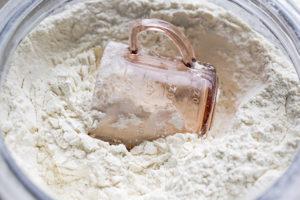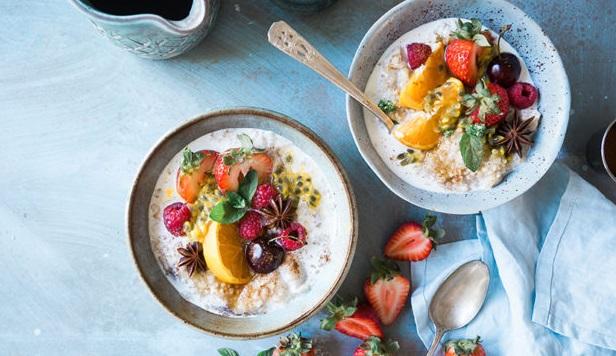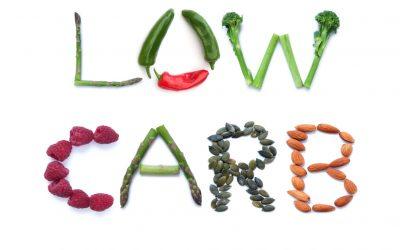A Complete Guide to Flour and Its Healthy Varieties
A Complete Guide to Flour and Its Healthy Varieties
Flour is typically the first ingredient that comes to mind when you think about baking. It is used in most, if not all, baked goodies out there. The science and the art behind baking is no secret among the most talented of bakers. Preciseness in the ingredients and its corresponding measurement is a must in arriving at your desired taste and texture. On a personal level however, you need to be able to determine the right flour to use to match with your particular dietary needs.
 Health-wise, there are gluten-free alternatives or bread that’s better for you. Mind you though that these two options could likewise mean two entirely different kinds of flour recommended for use. In general, Natalie Welch, R.D.N., M.S. points out that whole wheat flour is great as a choice because the nutrient storehouse and the fiber in the wheat kernel are both retained. But then again, your nutritional health goals are bound to determine which flour is best-suited for these purposes. Here is your ultimate guide to the varying kinds of flour and their dietary uses.
Health-wise, there are gluten-free alternatives or bread that’s better for you. Mind you though that these two options could likewise mean two entirely different kinds of flour recommended for use. In general, Natalie Welch, R.D.N., M.S. points out that whole wheat flour is great as a choice because the nutrient storehouse and the fiber in the wheat kernel are both retained. But then again, your nutritional health goals are bound to determine which flour is best-suited for these purposes. Here is your ultimate guide to the varying kinds of flour and their dietary uses.
All-Purpose Flour
Versatility is the name of the game when it comes to all-purpose flour. Surprisingly, it is made from wheat but it has been refined to remove the germ and the barn from the kernel. Sometimes called AP flour or white flour, all-purpose flour is famous for making mouth-watering cookies, moist muffins, and flaky crusted pies. So yes, it is best for traditional baking and creating delicious treats if you are not that conscious about the nutritional benefits.
Beachbody’s Quyen Vu, a Culinary Nutrition Specialist, apprises that white flour is mostly composed of carbohydrates and is lacking in protein and fiber. Needless to say, baking with refined flour is perfect mainly for special occasions but not for everyday consumption.
Coconut Flour
The paleo and keto diet programs promote grain-free and gluten-free options and this is what makes coconut flour a popular option among health enthusiasts. Coconut flour is made out of ground and desiccated coconut. Compared to almond flour, it has lesser calories and Vu confirms that in baked goods, it provides for that dense texture. Expect a bit of crunchy goodness and a strong taste when you swap it in recipes. Those on a low-carb diet would not mind replacing refined flour with coconut flour though as it helps them keep to their macros for the day.
Almond Flour
Another popular gluten-free option is flour that is made from peeled and blanched almonds that boast of that lightly sweet and nutty taste. If you are into a low-carb, high fat diet, almond flour is the right choice for you as it contains more fat when compared with white flour. Vu says that it is also more caloric and can make baked goods denser. In comparison to wheat flour though, almond flour cannot hold baked goodies together the same way due to the fact that it lacks gluten. Because of this, it would be ideal to use small amounts of almond flour together with other flour options.
Whole-Wheat Flour
Next in line when it comes to versatility is whole-wheat flour. It can competently replace AP flour in almost any dish or recipe including pumpkin pie. Whole-wheat flour is rich in fiber at approximately 13 per 100 grams. When you use 100% whole-wheat flour for baking, it would mean drier and denser breads or cookies. If you want to offset that, food writer and baker, PJ Hamel suggests that you can simply add 2 tablespoons of liquid with each cup of the whole-wheat flour. For a milder color and taste though, you can try the white version of whole-wheat flour. This variation is made from dehulled white spring wheat.
Other Wheat-Based Flours
There are a number of other wheat flour varieties available at the grocery shop including pasty flour, cake flour, and bread flour. You can tell their particular use by their names. Bread flour is one which is perfect for giving dough its strength and structure with its high-gluten content. Cake flour and pastry flour are known for its finer texture that helps render a soft crumb. You will want to choose whole-wheat pastry flour if you are looking for that extra protein and fiber in comparison with the white flour version. There’s also semolina flour which is used often when making gnocchi, pasta, or couscous.
Alternative Flours
All non-wheat flours can be found in this category and it includes coconut and almond flour. You can likewise add pea flour, chickpea flour, and ancient grain flours such as spelt, teff, barley, or quinoa. These alternative flours are mostly used in gluten-free baking. They add more fiber and protein to your recipes. Creativity and imagination is a must when trying out alternative flour recipes as you might need to experiment a bit to get that taste and texture you desire. Vu says that you can play with the amounts when you are trying to replace a refined flour recipe with an alternative flour for that protein-rich and high-protein option. It is not going to be a direct 1 to 1 measurement though so you have to have the right recipe if you want to achieve a similar result.
Gluten-Free Flours
Gluten is a naturally-occurring protein typically found in barley, rye, and wheat. Flours containing gluten adds strength and structure as well as binds ingredients together. However, there are those who cannot tolerate gluten and are looking for gluten-free flour alternatives. Fortunately, there is an array available in lentil, cassava, pea, millet, bean, quinoa, and oat flours. At times, gluten-free flours can also be whole-grain flours. And so if you are sensitive to gluten or is allergic, Welch suggests you choose from gluten-free options but those containing not less than 4 grams of fiber each serving. There are gluten-free flour guides that can help you in making a choice. Make sure to check the labels because gluten-free flour blends can vary.
Take a FREE test drive for 14 days! In addition to world class workouts you also get access to over 90 meditations. Are you ready to lose weight, build muscle, or feel more fit? Join Beachbody On Demand, and get unlimited access to Beachbody’s world-famous programs, including 10 Rounds, 80 Day Obsession, Liift 4, 21 Day FIX®, Body Beast, Insanity, The WORK, Barre Blend, TurboFire, PiYo, P90X®, 21 Day Fix Extreme, T25 and 100’s more. Don’t miss out on your chance for amazing results. Sign up today!





